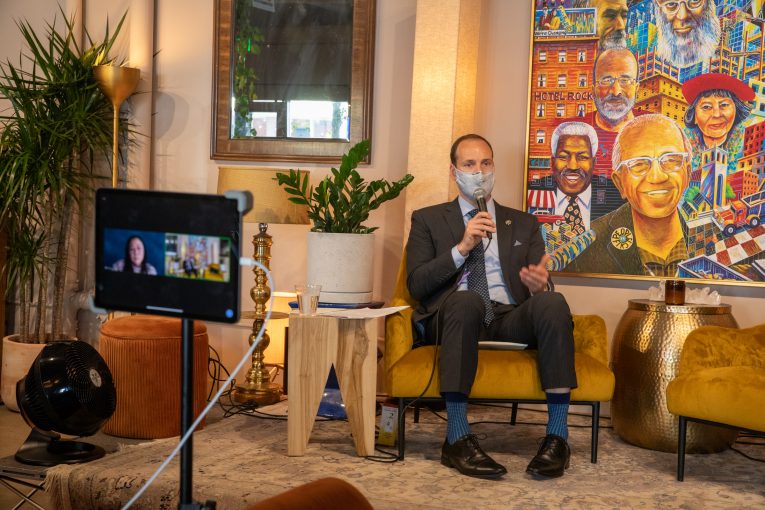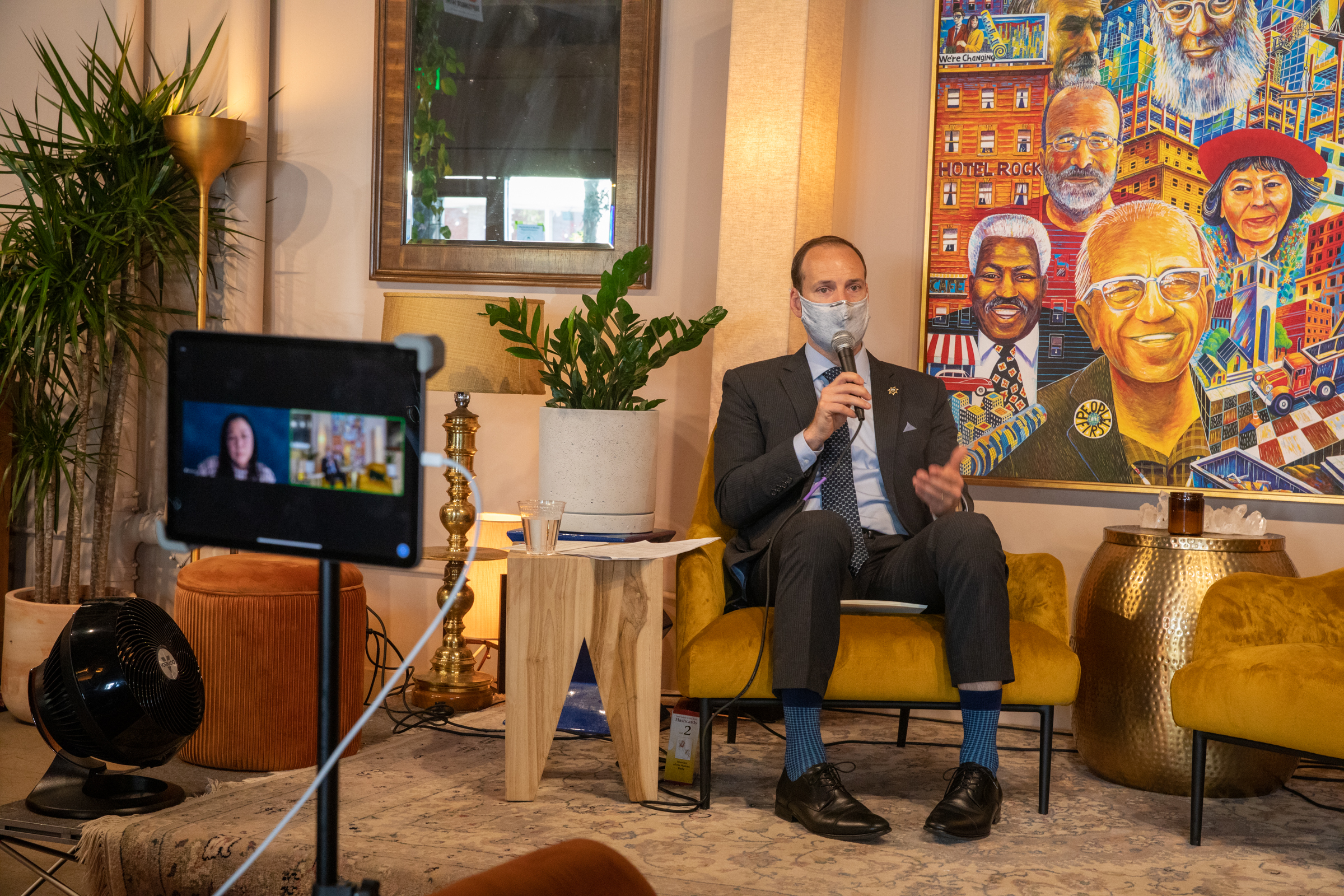

SAN FRANCISCO, CA – San Francisco District Attorney Chesa Boudin hosted a panel this week, Centering Survivors of Interpersonal Violence, at Manny’s Cafe in the Mission District with keynote speaker Donna Coker.
Donna Coker is a professor at the University of Miami School of Law and was present via Zoom to open the panel and briefly discuss what it means to center the voices of domestic violence survivors.
Coker talked about “governing through crime era” and “we’ve become crime centered in our response to interpersonal domestic violence,” meaning that when victims of domestic violence seek support they are filtered through the criminal justice system and oftentimes treated as criminals.
Coker centered her conversation with DA Boudin around the role of police.
The police tend to have high surveillance in low income communities of color, causing them to lead with a racial bias and see victims as criminals or  to immediately arrest and detain the abuser, even if the victim objects to an arrest, she said.
to immediately arrest and detain the abuser, even if the victim objects to an arrest, she said.
This immediate detaining process “weakens social ties [and] harms the families or those incarcerated,” Coker explained, noting four main problems with this crime-centered approach to supporting victims of domestic violence.
First, Coker said, “many survivors don’t want it” because they want to repair their relationship with their abusive partner and they want to protect their children, if they have any.
Secondly, she added, it increases state control of people who are subject to state control through the lens of race, gender, sexual orientation, class, etc.
Thirdly, Coker argued it ignores state perpetrated violence and gender violence never becomes part of the discussion especially when it is about black women, or other women of color.
Lastly, it creates “collaborations that make it hard to be critical of the police,” according to Coker.
Most importantly, punitive responses do not get to the root of the problem of domestic violence and do not address victims’ trauma and their possible repeat trauma, said Coker, suggesting room for improvement and reform within the criminal justice system.
If police do arrive, Coker wants this to be a gateway of support to both the victim and the abuser which starts with not arresting the abuser if that is what the victim wants.
In fact, Coker explained that when arrests are not made and treatment programs are utilized, recidivism rates decrease.
“The footprint of the criminal justice system needs to be much, much smaller” and reform needs to occur on both the inside and outside of the system, Coker concluded.





